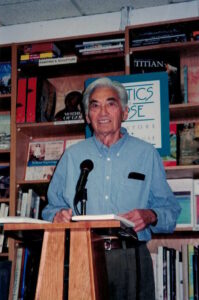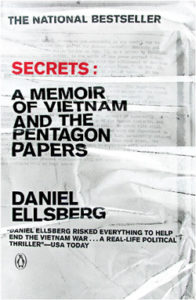Tony Russo came to be my best friend at Rand after I came back from Vietnam in 1967, and we became even closer after he left. He was fired from Rand, despite my efforts to keep him, for the best of reasons: He had, in classified reports, analyzed the class basis of the Vietnam conflict, and he had exposed the widespread use of torture by our Vietnamese forces, with American involvement. I learned more from Tony than from anyone else about the nature of the National Liberation Front, some members of which had impressed him deeply when he interviewed them about a Rand research project. He was brilliant and funny, with a very original and creative mind. He was also very warm — more likeable than me, as many who attended our trial discovered.
Just before I decided to copy the Pentagon Papers, with Tony’s help, he made a suggestion that played a key role in my decision. Tony did not know that the Pentagon Papers were being held at Rand, or were in my safe, or even that I had worked on the study, because I was under orders not to tell anyone. But I did tell him in late September 1969 that I had been reading a study (which later became the basis of the Pentagon Papers) that revealed a lot of high-level lying. He said to me, “You ought to put that out.” This was an extraordinary thing for someone who had until recently held a top secret clearance to say to anyone, least of all to someone who still had a clearance. In fact, I never heard of such a suggestion being made before or since (except of course by me, later). A week after this conversation, with other events working on my mind, I called him up and said, “Tony, do you know a study that I mentioned last week? Well, I’ve got it, and I think I will put it out. Can you help?” Continue Reading


